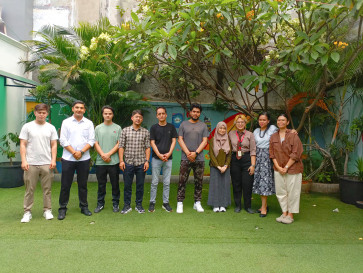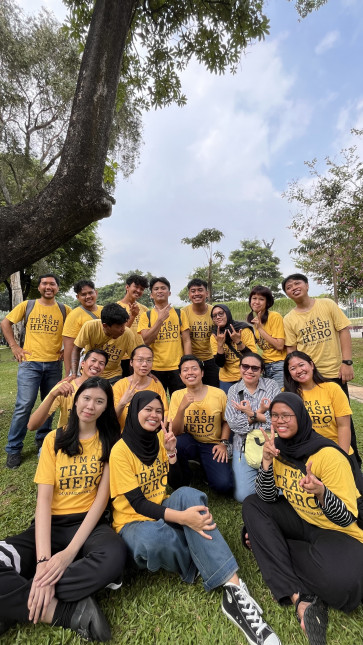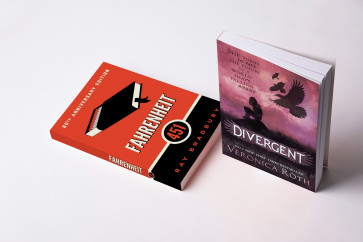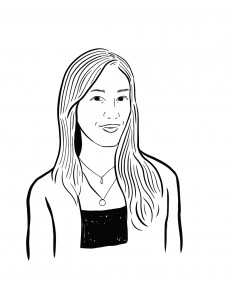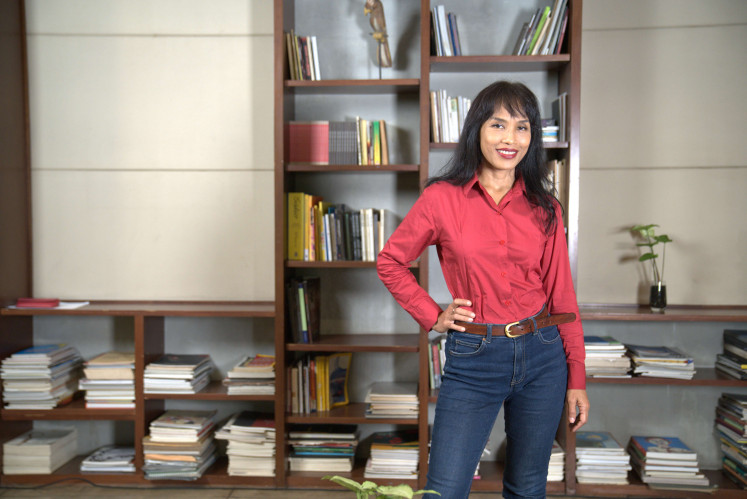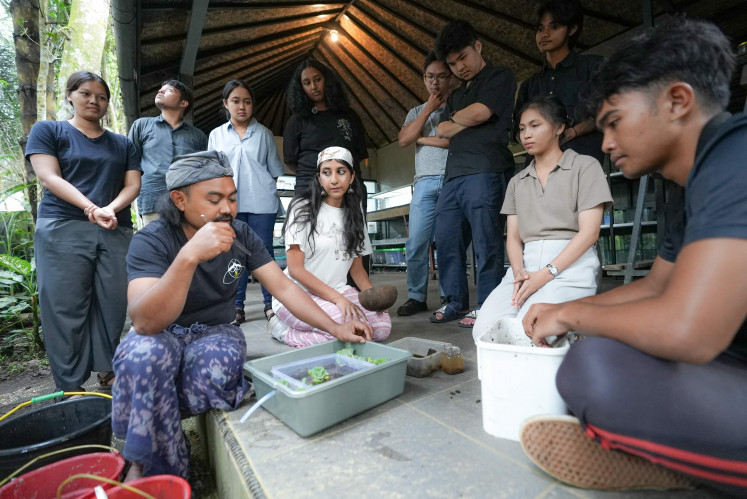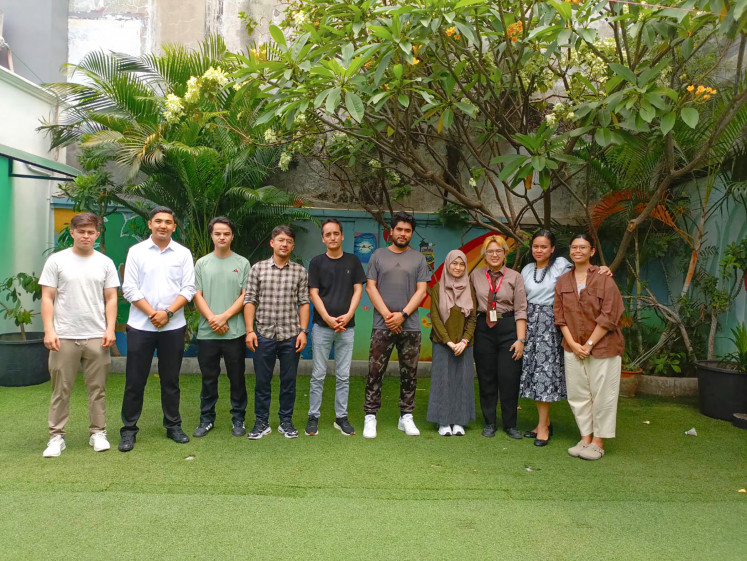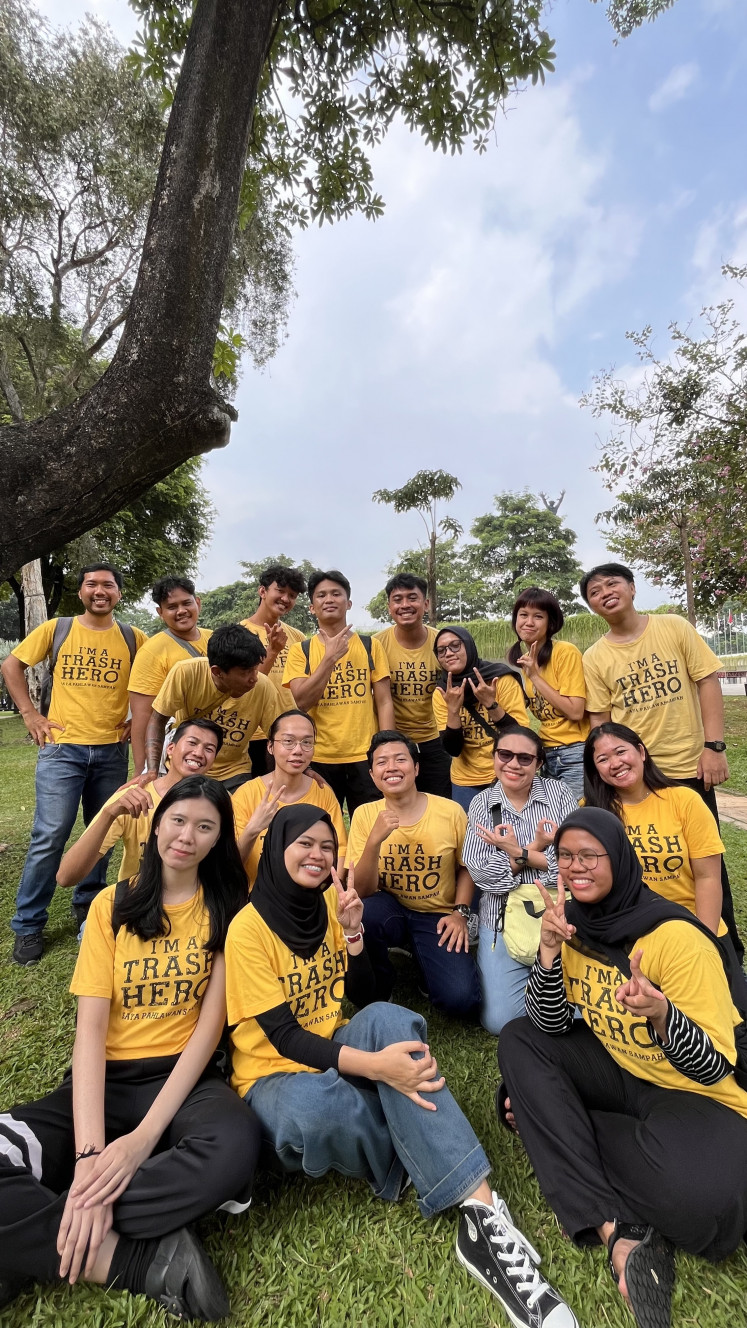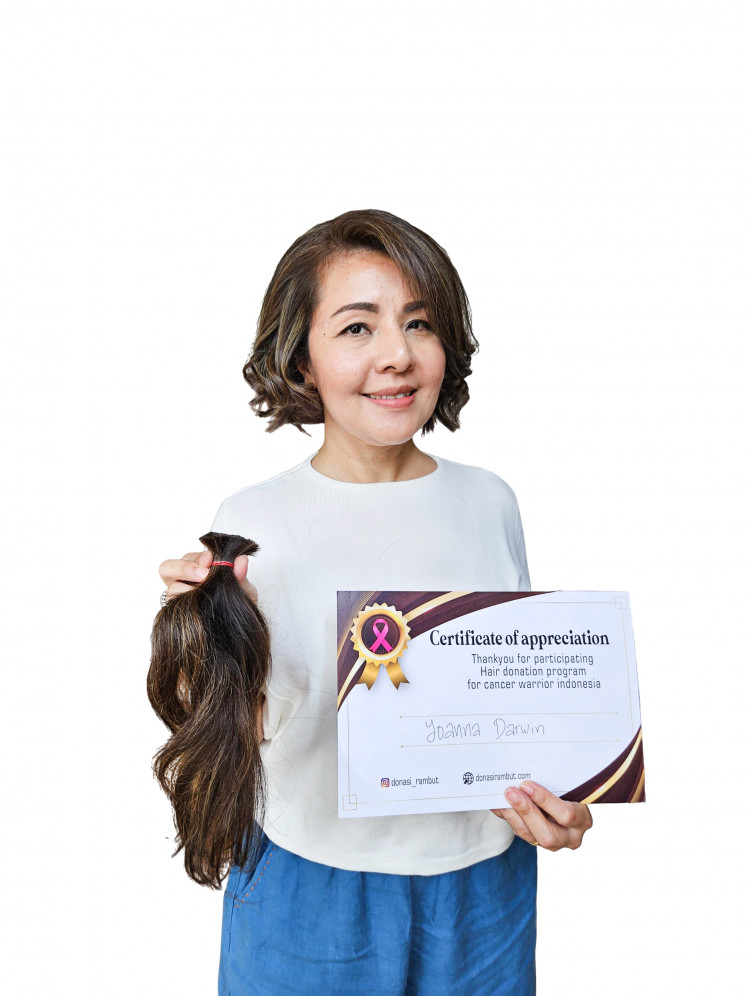Bold yet enigmatic: Ayu Utami became a household name in literature when she published her first novel Saman in 1998.
Wearing a red button-down shirt and jeans, Ayu Utami walks into one of the rooms at Salihara Arts Center with a certain air of comfort around her. After all, this is her domain.
This center, she says, is a place where people work together to promote the quality of arts and thought.
“We don't yet have quality in our speech, our thoughts,” Ayu clarifies. “So we have to develop this quality, and that's what I am doing now.”
Perhaps most people know Ayu for her writing and acclaimed novels such as Saman, Larung and Lalita, along with short stories that have garnered praise from her peers.
As the saying goes, the pen is mightier than the sword. Throughout her career as a journalist and writer, Ayu has wielded her words to critique the government, address conflicts in society, explore sexuality and tackle other topics that may be considered taboo.
Bold yet enigmatic: Ayu Utami became a household name in literature when she published her first novel Saman in 1998. (The Jakarta Post)

Thank you!
For signing up to our newsletter.
Please check your email for your newsletter subscription.
On her next novel
Her next novel, Dekaden, set to be published this year, will be no different.
The story follows a young couple grappling with the monotony of their lives after a few years of living together.
After the woman becomes involved with another, more powerful man, the narrative evolves into her struggle to break free from this power play and return to the comfort of her old lover.
Ayu says the book was an opportunity to challenge herself. It was her first time writing a novel that tackles sexuality and intimacy in every single chapter.
“When I began writing this novel, I didn't see anything wrong [with the country]. I thought Indonesia was embracing democracy, which was a good sign, and I didn't want to write about politics anymore,” she recounts.
“So I really wanted to write about something more personal, psychological, sexual, without any political context. But then, we started to see [some changes].”
The novel, five years in the making, has undergone several revisions to include stories that may draw parallels to real-life headlines. Ayu hints it may have been influenced by the broader moral decline of Indonesia as a country.
Religion, repression and resistance
Of course, Ayu has her reasons for delving into controversial and fearless topics.
On religion and repression, she wants to highlight the rise of intolerance and the use of religious sentiments to fuel conflict in Indonesia since the start of the Reformation era over two decades ago.
Religion has always been central to Indonesian culture and beliefs, which unfortunately also makes it a part of the national discourse.
Through her work, Ayu wants to emphasize the importance of developing both spirituality and critical thinking. These two, she says, need to go hand-in-hand.
“This spirituality or being religious is a fact. It's a social fact in Indonesia that you cannot deny and have to face. I think that's why it is always involved not only in my novels but also in my writings, as a source of inspiration but also as a problem itself,” she says.
Though she doesn’t consider herself an activist because she’s no longer “active”, Ayu draws from her background as a journalist and activist for press freedom during Soeharto’s regime.
“After the political change in 1998, I thought press freedom would bring, like, rationality and democracy to Indonesia. I used to think that if society had press freedom, if society had the right news, they would certainly make the right choices. But that's not the case,” she laments.
Ever enigmatic, she does not clarify what “the right choice” means.
On her writings on sexuality, Ayu says it can be seen as an act of resistance against efforts to control women's bodies. It is important, she says, for women to explore their own sexuality.
Let the words come through
While the recurring themes in Ayu’s book can be seen as a hallmark of her work, setting her apart from her peers, some may wonder exactly what she wishes to convey to her readers.
“I don't have a message in my novels,” she says nonchalantly.
This may surprise some, yet it ties back to the reason why most pick up a pen and an empty piece of paper in the first place.
“Novels, for me, are my way to cope with the complexity of the world. So I want to understand this world. It is not that I'm giving a message to the readers, it's actually me trying to give meaning to this complexity, to this chaotic world,” she explains.
“If this process of developing meaning or giving meaning to this or trying to understand myself has a reflection for the readers, then I'm glad.”
Sheena Suparman is a writer for The Jakarta Post's Creative Desk. She is based in Jakarta but wishes she could be anywhere else. She’s usually powered by coffee, chips and cheeseburgers.






